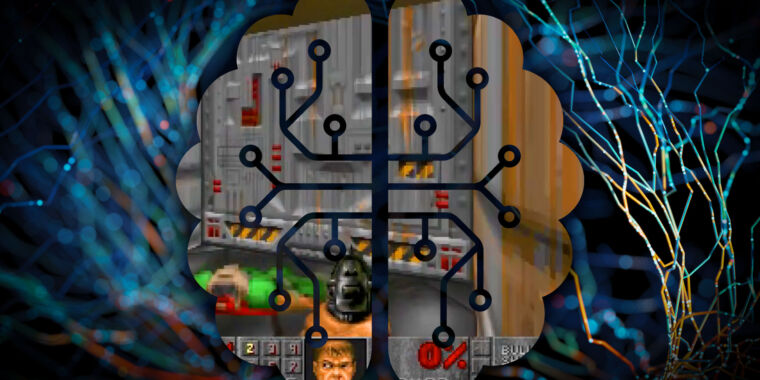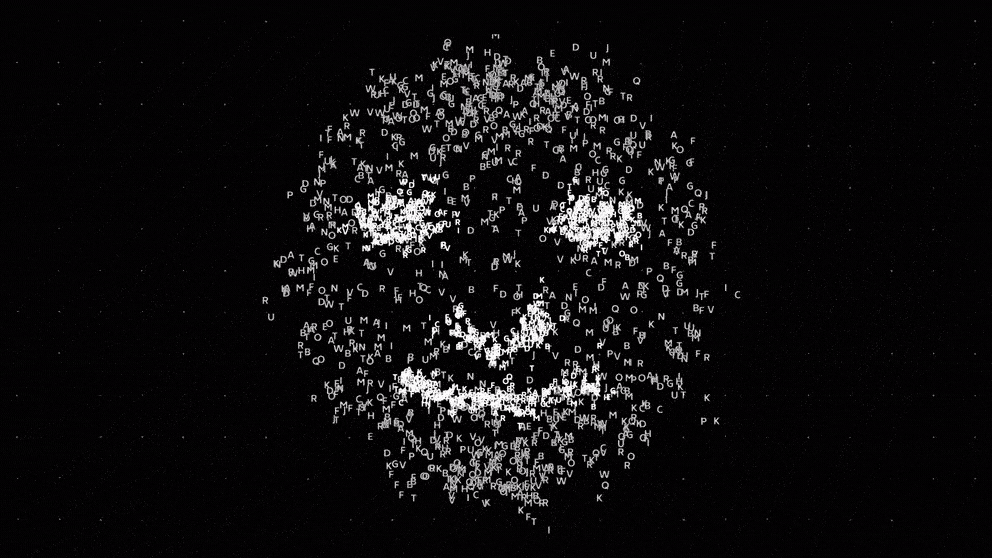Gaywallet (they/it)
I’m gay
- 42 Posts
- 92 Comments

 7·19 days ago
7·19 days agoWe weren’t surprised by the presence of bias in the outputs, but we were shocked at the magnitude of it. In the stories the LLMs created, the character in need of support was overwhelmingly depicted as someone with a name that signals a historically marginalized identity, as well as a gender marginalized identity. We prompted the models to tell stories with one student as the “star” and one as “struggling,” and overwhelmingly, by a thousand-fold magnitude in some contexts, the struggling learner was a racialized-gender character.

 1·1 month ago
1·1 month agoIf you wish to discuss the controversy, feel free to make a post or link to an article. I’m personally not interested in hosting a link to these weirdos.

 6·1 month ago
6·1 month agoI find NFC stickers often require an annoyingly close connection (unless it’s a rather large antenna) and can be particularly finicky with certain cases and other attachments people put on phones. Realistically they both take approximately the same amount of time and it’s way cheaper to print a tag than it is to buy a single NFC sticker

 17·1 month ago
17·1 month agoMy fav application is scanning with a phone to immediately get on wifi

 1·1 month ago
1·1 month agoStarted and finished 1000xResist over the course of a few days. In general I often find myself turned off by games with aging graphics, not for any good reason but more that I just find less of a pull towards them. I have more trouble being engaged or immersed, unless there’s a really strong art focus. This is one such game that I was worried I wouldn’t get pulled into, and in fact one that sat on a list of “maybe I’ll pick it up” because it was so highly reviewed but I was worried about that facet. It did not take very long for the game to grip me, however, because of it’s excellent storytelling. In fact, the game is almost entirely about storytelling, so there’s not a ton that I can share other than to say that it deals with a lot of difficult themes like intense trauma, bullying, having a tough childhood, extreme ideologies, and the long term effects of violence. It also deals with more societal and human issues like protests, fascism, extreme duress, how self-interested and powerful individuals can cause serious problems and inflict violence, being optimistic or nihilistic in the face of overwhelming odds, and the threat of extinction.
While it isn’t a very long game, consisting of maybe a dozen hours of gameplay, I found myself putting it down for a while after certain chapters in order to process what just happened. The story throws a lot of curveballs and reveals information that can easily change the way you frame entire chapters of the story from earlier, but it never feels like it’s done in a way that inspires whiplash - nothing ever feels like a ‘sudden’ realization and I’m honestly not sure how much of it can be attributed to such a difficult story (if everything is fucked, what’s one more thing?) and how much is because they do a masterful job at slowly unraveling the enigma of the story that very few pieces of information ever really feel out of place. There’s unfortunately only so much I can write without spoiling the story, but I will say that it was one of the best stories I’ve heard or played through and I’d thoroughly recommend it to anyone who likes a good story or wants to explore the themes I’ve mentioned above. Also, if anyone else out there played through this, I’d love to hear your thoughts on the story… what did you think? Do you have any lingering questions left over? Were there parts of the story that irked you or that you found particularly moving?

 1·2 months ago
1·2 months agoI suppose to wrap up my whole message in one closing statement : people who deny systematic inequality are braindead and for whatever reason, they were on my mind while reading this article.
In my mind, this is the whole purpose of regulation. A strong governing body can put in restrictions to ensure people follow the relevant standards. Environmental protection agencies, for example, help ensure that people who understand waste are involved in corporate production processes. Regulation around AI implementation and transparency could enforce that people think about these or that it at the very least goes through a proper review process. Think international review boards for academic studies, but applied to the implementation or design of AI.
I’ll be curious what they find out about removing these biases, how do we even define a racist-less model? We have nothing to compare it to
AI ethics is a field which very much exists- there are plenty of ways to measure and define how racist or biased a model is. The comparison groups are typically other demographics… such as in this article, where they compare AAE to standard English.

 5·2 months ago
5·2 months agoWhile it may be obvious to you, most people don’t have the data literacy to understand this, let alone use this information to decide where it can/should be implemented and how to counteract the baked in bias. Unfortunately, as is mentioned in the article, people believe the problem is going away when it is not.

 19·2 months ago
19·2 months agoJust because there’s no ethical consumption under capitalism doesn’t mean that we have zero control over what we consume. It’s perfectly fine to hold a viewpoint of trying to minimize harm where you can and when you’re aware of it. Where you draw your lines doesn’t have to be perfect either (after all, we’re human).

 14·2 months ago
14·2 months agowow what a thoughtful reply thank you, you really read that article and brought a lot of good points to the table for us to discuss

 3·2 months ago
3·2 months agoI do want to point out that social media use may be one of the first of these ‘evils’ to meet actual statistical significance on a large scale. I’ve seen meta-analyses which show an overall positive association with negative outcomes, as well as criticisms and no correlation found, but the sum of those (a meta-analyses of meta-analyses) shows a small positive association with “loneliness, self-esteem, life satisfaction, or self-reported depression, and somewhat stronger links to a thin body ideal and higher social capital.”
I do think this is generally a public health reflection though, in the same way that TV and video games can be public health problems - moderation and healthy interaction/use of course being the important part here. If you spend all day playing video games, your physical health might suffer, but it can be offset by playing games which keep you active or can be offset by doing physical activity. I believe the same can be true of social media, but is a much more complex subject. Managing mental health is a combination of many factors - for some it may simply be about framing how they interact with the platform. For others it may be about limiting screen time. Some individuals may find spending more time with friends off the platform to be enriching.
It’s a complicated subject, as all of the other ‘evils’ have always been, but it is an interesting one because it is one of the first I’ve personally seen where even kids are self-recognizing the harm social media has brought to them. Not only did they invent slang to create social pressures against being constantly online, but they have also started to self-organize and interact with government and local authority (school boards, etc.) to tackle the problem. This kind of self-awareness combined with action being taken at such a young age on this kind of scale is unique to social media - the kids who were watching a bunch of TV and playing video games didn’t start organizing about the harms of it, the harms were a narrative created solely by concerned parents.

 6·2 months ago
6·2 months agoprobably not, in the same way that your grandma calls a video chat a facetime or your representative might call the internet a series of tubes
AI is the default word for any kind of machine magic now

 17·2 months ago
17·2 months agoFor those that are curious, here’s the exact questions used and the %s by demographic

Generally speaking I’d also fall into the rather play games category, but it really depends on the context. Unfortunately there aren’t too many couch co-op kind of games anymore so if the goal is to spend time with someone playing a video game doesn’t often work great.

 1·2 months ago
1·2 months agooof, big flaw there

 4·2 months ago
4·2 months agoAny information humanity has ever preserved in any format is worthless
It’s like this person only just discovered science, lol. Has this person never realized that bias is a thing? There’s a reason we learn to cite our sources, because people need the context of what bias is being shown. Entire civilizations have been erased by people who conquered them, do you really think they didn’t re-write the history of who these people are? Has this person never followed scientific advancement, where people test and validate that results can be reproduced?
Humans are absolutely gonna human. The author is right to realize that a single source holds a lot less factual accuracy than many sources, but it’s catastrophizing to call it worthless and it ignores how additional information can add to or detract from a particular claim- so long as we examine the biases present in the creation of said information resources.

 3·2 months ago
3·2 months agoCheers for this, found two games that seem interesting that I never heard about before!

 3·2 months ago
3·2 months agoThis isn’t just about GPT, of note in the article, one example:
The AI assistant conducted a Breast Imaging Reporting and Data System (BI-RADS) assessment on each scan. Researchers knew beforehand which mammograms had cancer but set up the AI to provide an incorrect answer for a subset of the scans. When the AI provided an incorrect result, researchers found inexperienced and moderately experienced radiologists dropped their cancer-detecting accuracy from around 80% to about 22%. Very experienced radiologists’ accuracy dropped from nearly 80% to 45%.
In this case, researchers manually spoiled the results of a non-generative AI designed to highlight areas of interest. Being presented with incorrect information reduced the accuracy of the radiologist. This kind of bias/issue is important to highlight and is of critical importance when we talk about when and how to ethically introduce any form of computerized assistance in healthcare.

 4·2 months ago
4·2 months agoah yes, i forgot that this article was written specifically to address you and only you

 3·2 months ago
3·2 months agoBeen thinking about picking this one up















Unfortunately, doing this can make things worse. It’s not a simple problem to solve, but you are generally on the right track. A good example of how it’s more than just names, is how orchestras screen applicants - when they play a piece they do so behind a curtain so you can’t see the gender of the individual. But the obfuscation doesn’t stop there - they also ensure the female applicants don’t wear shoes with heels (something that makes a distinct sound) and they even have someone stand on stage and step loudly to mask their footsteps/gait. It’s that second level of thinking which is needed to actually obscure gender from AI, and the more complex a data set the more difficult it is to obscure that.